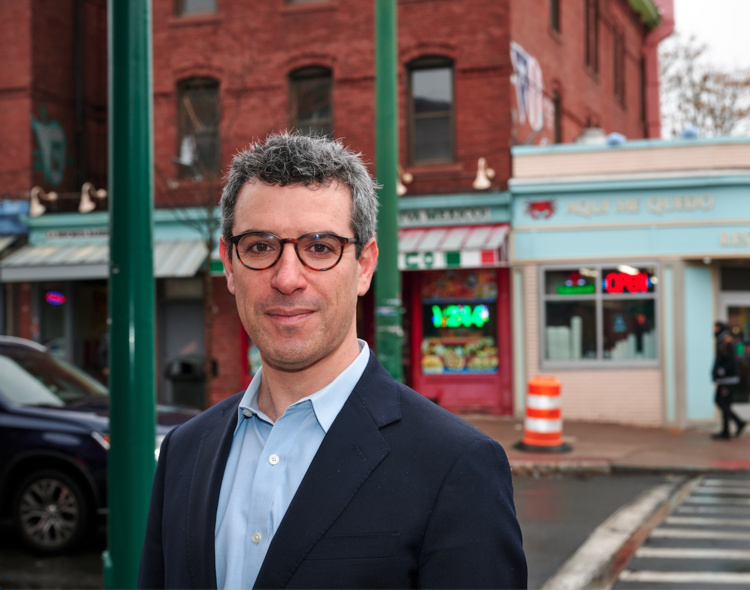Colgate University’s history department hosted Professor Andy Horowitz, an associate professor of history at the University of Connecticut, Connecticut State Historian and author of the acclaimed book “Katrina: A History, 1915-2015,” on Wednesday, Sept. 18. His work examines the roots of Hurricane Katrina’s devastation in New Orleans, La. and focuses on how disasters are not just sudden, isolated events but are deeply tied to race, class and state policy. Horowitz’s lecture urged listeners to rethink how they understand disasters like Katrina.
“Disasters are not unpredictable attacks or acts of God that arrive without precedent,” Horowitz said. “Their causes and consequences reach across much longer periods of time and space than we commonly imagined.”
He explained that viewing Katrina solely through its immediate aftermath ignores the deeper structural factors that left New Orleans so vulnerable. Horowitz highlighted the impact of state policies and environmental changes in creating conditions for disaster to strike, long before Hurricane Katrina hit the city. He described how the industrial canal flood wall, near the Lower Ninth Ward, was a product of longterm policies that enabled the development of flood-prone areas.
“The levees broke in 2005, but the turning point was 1915,” Horowitz said.
To illustrate the long term impact of the policies he studied, Horowitz focused on the story of Ida Belle Joshua, a resident of the Lower Ninth Ward. Federal housing policies had pushed many African Americans into low-lying, flood-prone areas like her neighborhood. When Hurricane Katrina hit, the flood wall failed, flooding thousands of homes and heavily affecting the many African American residents who lived the Lower Ninth Ward, but also the residents of surrounding white suburbs. The separation in their experiences surrounding Katrina lay not in the storm itself but in its aftermath. Despite the devastation, disaster recovery loans still required collateral — their homes. With no choice but to rebuild and not enough money to do it, homeowners like Joshua found themselves unable to return to their home, New Orleans.
Horowitz emphasized that the aftermath of Katrina disproportionately affected African Americans.
“Racism played a defining role in determining who could return afterward,” Horowitz said.
The shooting of unarmed African Americans by New Orleans police officers, the Federal Emergency Management Agency (FEMA) distributing trailers laced with formaldehyde, the demolition of public housing and the transformation of the city’s public school system into a network of charter schools were among the issues Horowitz deemed evidence of post-Katrina-era systemic racism.
First-year Carolina Hommen found Horowitz’s thoughts on the misnomer of “natural disaster” enlightening.
“His point that there’s ‘no such thing as a natural disaster’ really stood out to me. It’s about context,” Hommen said. “It’s not just about the destruction of Katrina. Policies that were supposed to help ended up reinforcing inequality.”
Senior Zack Brown also spoke about his experience at the talk.
“I thought that the talk was very informative and a reminder that government failure can exacerbate the negative consequences of disasters,” Brown said.
Senior Grace LaBruno was interested in how Horowitz’s research interacts with other aspects of history as a discipline.
“A major ethical dilemma Horowitz presents is how to engage with history when those impacted by an event are still alive or whose family members are,” LaBruno said. “Horowitz emphasized that a good historian leads with empathy, and I will definitely keep that in mind while working on my thesis.”
Horowitz concluded the lecture by sharing how, despite her resilience, Ida Belle Joshua’s story ended in heartbreak. As she worked to rebuild her life, her home was bulldozed due to what the city called a “clerical error.”
Horowitz’s parting statement reminded listeners of the inextricable bond between environmental and political injustice.
“We call it the climate crisis, but truly, the crisis we face is one of democracy,” Horowitz said.














